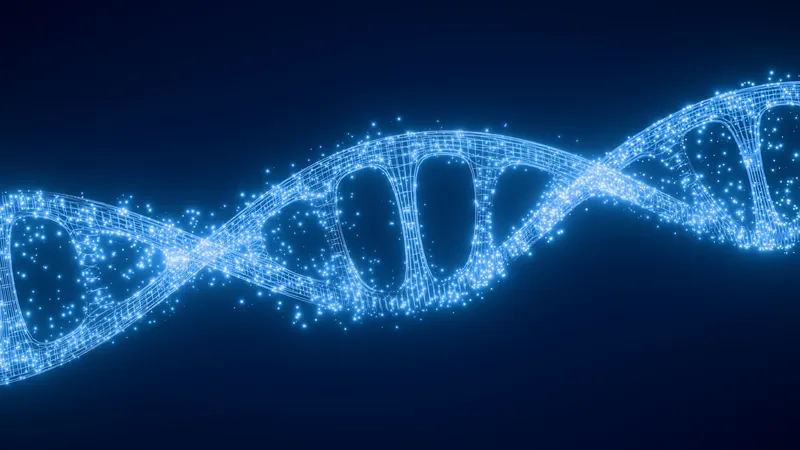
Unlocking Humanity's Hidden 'Superpowers': The Science of Hibernation Genes
2025-08-03
Author: Ken Lee
Could We Unlock Our Inner Superpowers?
Imagine if humans could tap into the extraordinary abilities of hibernating mammals! Scientists have recently uncovered that we share specific genes connected to hibernation, which could hold the key to unlocking surprising health benefits.
The Power of Hibernation Genes
According to Christopher Gregg, a human genetics professor at the University of Utah, hibernation isn't just about survival; it may offer a treasure trove of 'biometrically important superpowers.' These could potentially revolutionize how we approach a variety of medical conditions.
For instance, ground squirrels have a fascinating ability to manage insulin resistance, enabling quick weight gain before hibernation—something that fades as they enter this unique state. Understanding how these animals manage such metabolic shifts could provide critical insights for treating type 2 diabetes.
A Breakthrough Study Unveils Potential Benefits
In two groundbreaking studies published in the journal Science, Gregg and his team studied key genetic levers that control hibernation-related genes. They focused on manipulating specific genes in lab mice—an ideal model despite their lack of true hibernation.
Using CRISPR technology, scientists 'knocked out' certain genetic elements, leading to remarkable changes in the mice's weight, metabolic rates, and even foraging behaviors. Deleting one specific element transformed the female mice's ability to gain weight on a high-fat diet, while another modification influenced how both male and female mice searched for food.
Lessons for Humans: What Lies Ahead?
The implications of these findings could extend to human health, given the genetic similarities across mammals. However, it's not as straightforward as changing human DNA to mirror these effects. Experts caution that while the foundations are there, the road to application requires more investigation.
Joanna Kelley, a functional genomics expert, emphasized the need for future studies to focus not only on hibernation-capable animals but also on understanding the complex effects of these genetic changes. Differences in male and female mice responses also underscore the need for tailored research.
Transforming Our Understanding of Metabolism
This research opens new doors regarding our understanding of metabolism and the genetic mechanisms that influence it. While we may not be able to hibernate, the potential to harness aspects of these genetic controls could lead to innovative treatments for a myriad of metabolic disorders.
The Future Is Bright: Potential Drug Interventions
Gregg is optimistic that one day we could manipulate the activity of these 'hibernation hub genes' through medication, allowing us to reap the neuroprotective benefits of hibernation without needing to undergo the dormancy ourselves.
As studies evolve, the exploration of hibernation genes might just hold the key to enhancing human health and perhaps, revealing superpowers we never knew we had!


 Brasil (PT)
Brasil (PT)
 Canada (EN)
Canada (EN)
 Chile (ES)
Chile (ES)
 Česko (CS)
Česko (CS)
 대한민국 (KO)
대한민국 (KO)
 España (ES)
España (ES)
 France (FR)
France (FR)
 Hong Kong (EN)
Hong Kong (EN)
 Italia (IT)
Italia (IT)
 日本 (JA)
日本 (JA)
 Magyarország (HU)
Magyarország (HU)
 Norge (NO)
Norge (NO)
 Polska (PL)
Polska (PL)
 Schweiz (DE)
Schweiz (DE)
 Singapore (EN)
Singapore (EN)
 Sverige (SV)
Sverige (SV)
 Suomi (FI)
Suomi (FI)
 Türkiye (TR)
Türkiye (TR)
 الإمارات العربية المتحدة (AR)
الإمارات العربية المتحدة (AR)